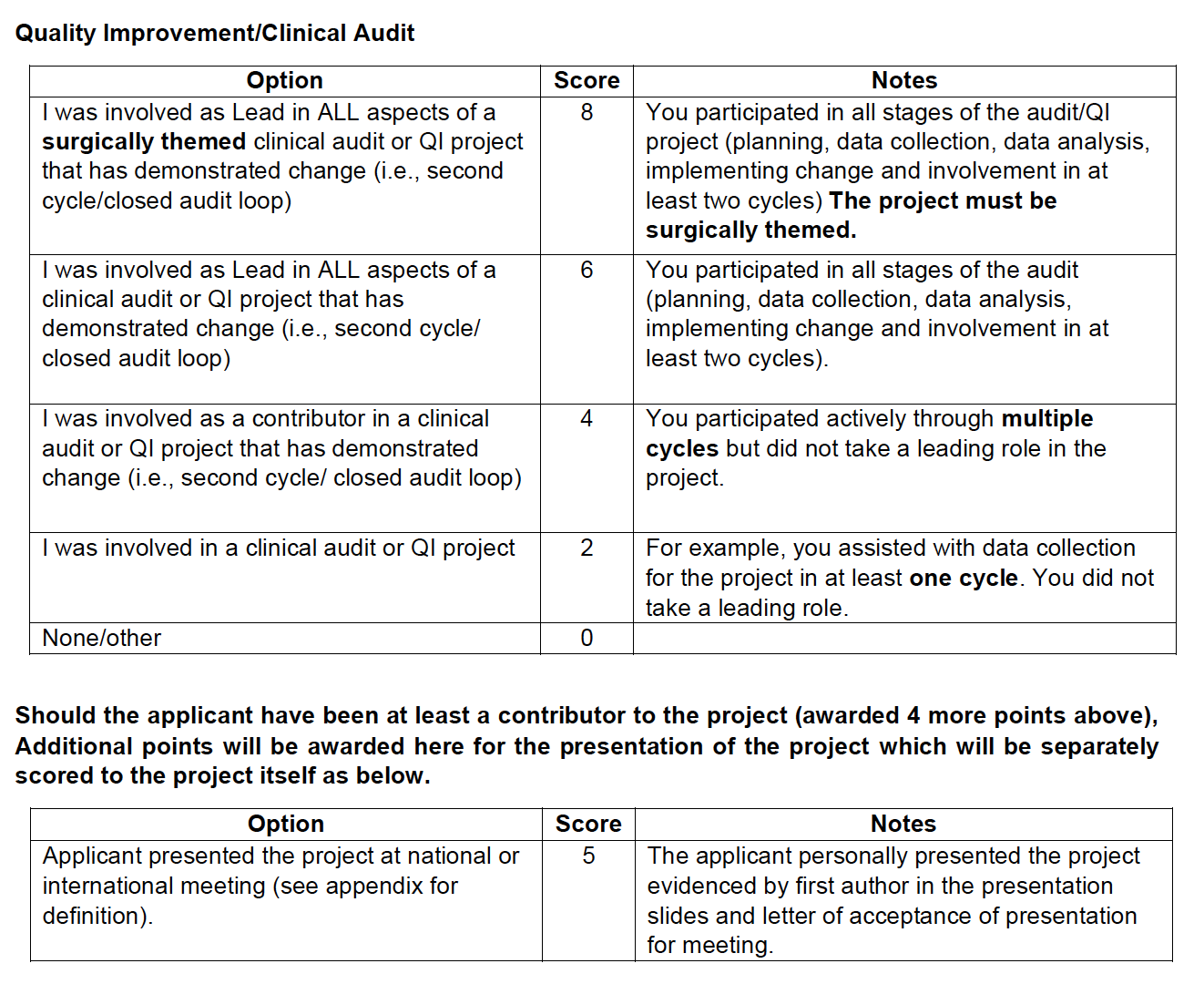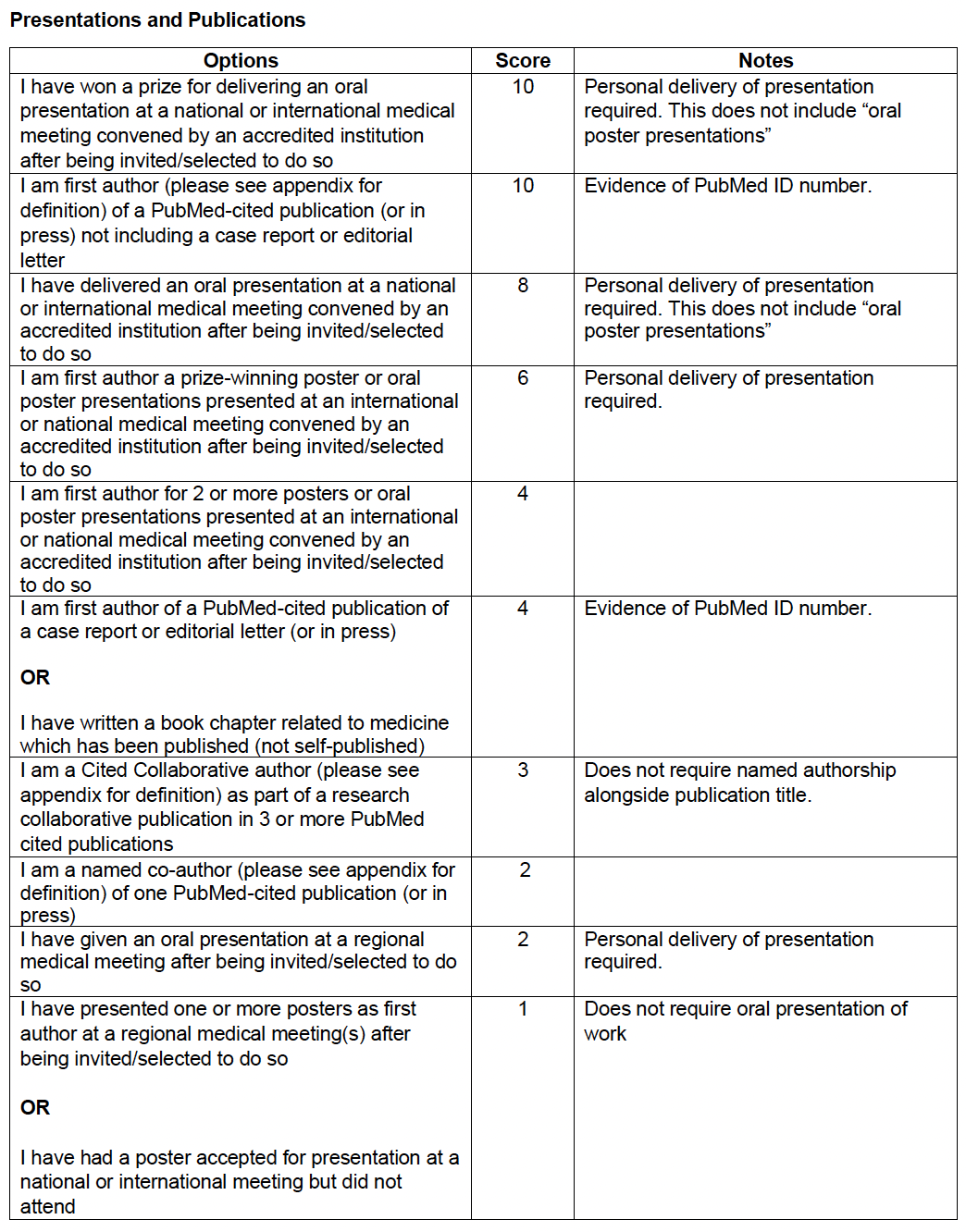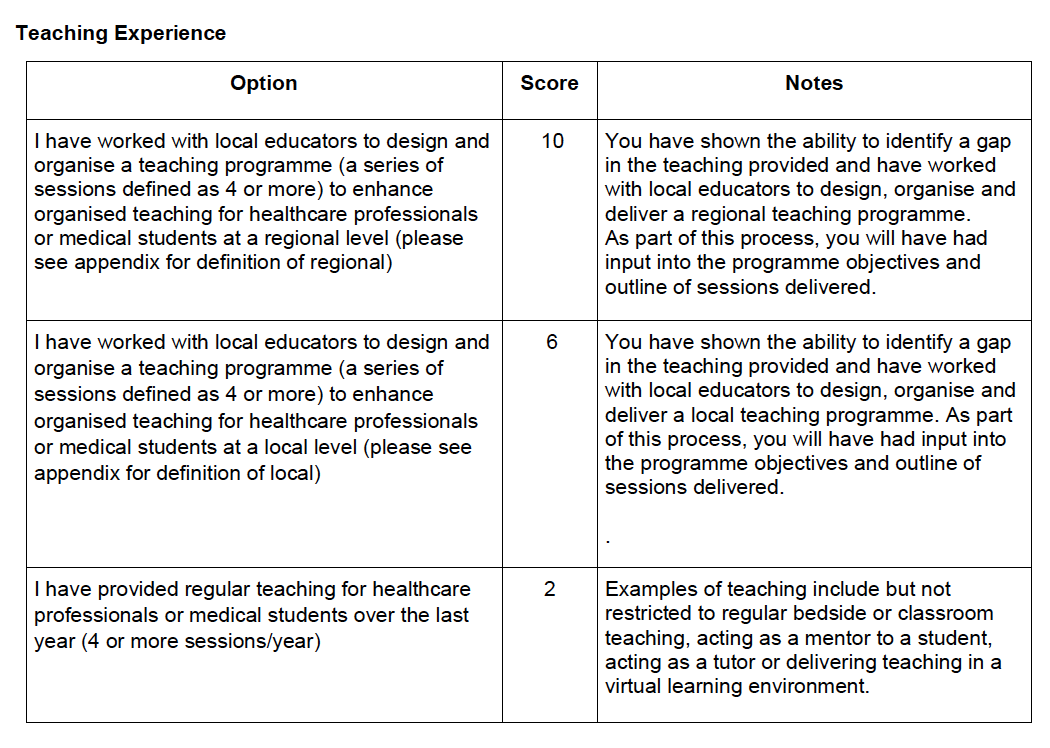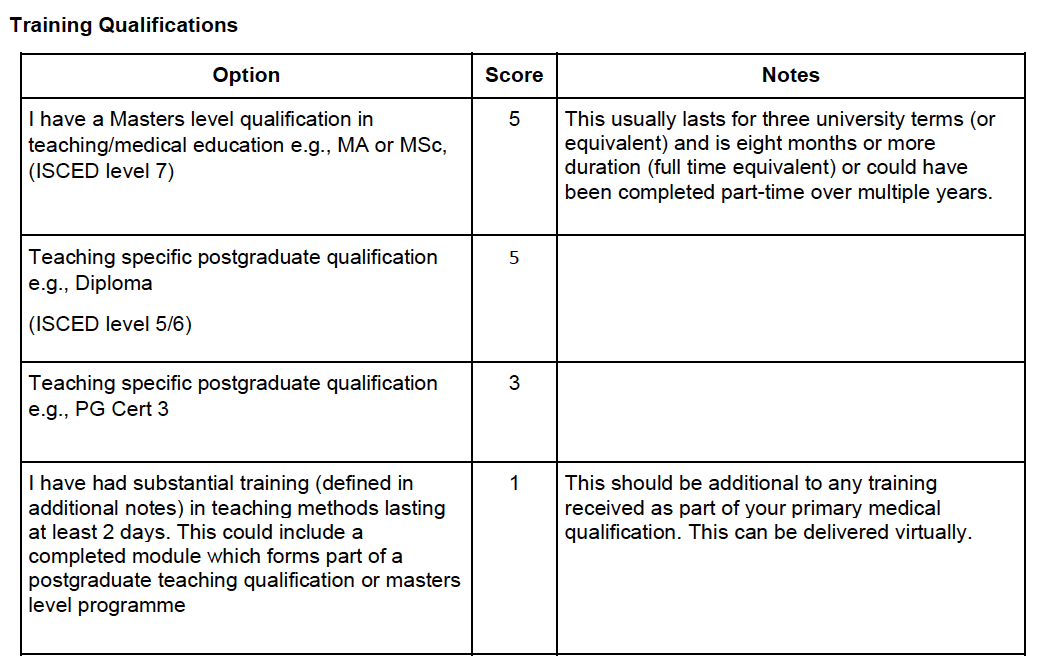Commitment To Surgery
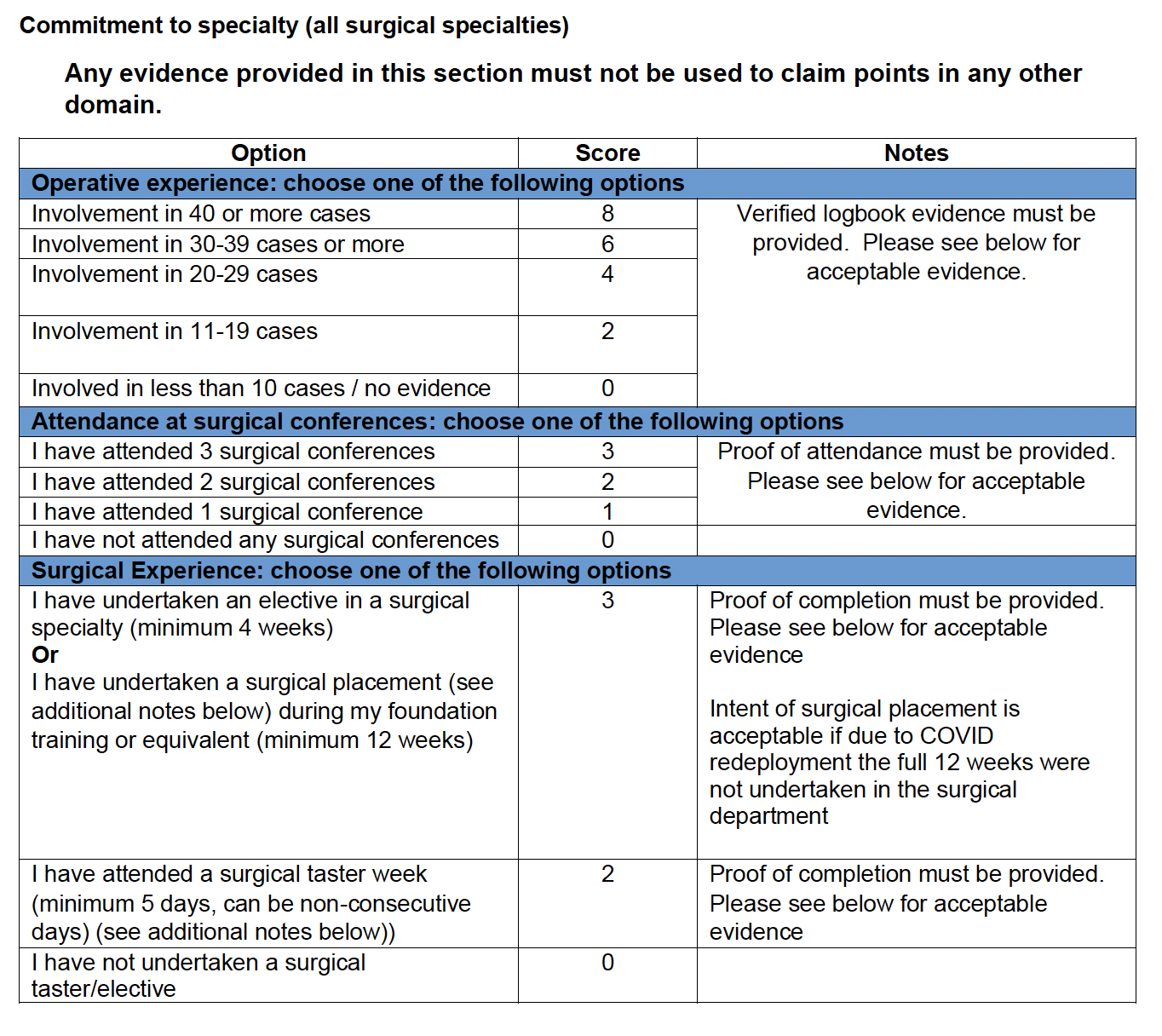
Any evidence provided in this section must not be used to claim points in any other
domain.
Additional notes
A surgical taster must have covered at least 5 days in total though does not need to be undertaken in
consecutive days. A 5-day surgical taster booked for 2023 will receive 0 points.
All surgical experience should be evidenced by recording in the UK Pan-Surgical Logbook (eLogbook).
Recognised surgical placements include Plastic Surgery, Neurosurgery, Vascular Surgery, ENT Surgery,
Cardiac/Thoracic surgery, ITU, Urology, Oral & Maxillofacial Surgery, General Surgery, Orthopaedic
Surgery, Paediatric Surgery. Intended surgical placements will also be acceptable if those placements
were affected due to COVID redeployment
Evidence required for confirmation of surgical experience
1. Consolidation report for each specialty to include
• The summary sheet of the consolidation report (detailing the number of procedures
undertaken and the date range the operations undertaken) needs to be
o signed by a consultant including their
▪ Full name,
▪ GMC number (or corresponding national medical registration equivalent)
▪ The date the consultant validated the summary sheet.
Please do not provide a copy of your entire logbook. Your personal involvement can include assisting or
supervised trainer scrubbed procedures though not observed and must not include procedures that all UK
trainees are expected to have signed off as part of their foundation competencies.
Only 1 consolidation report upload permitted for each specialty. Any further will not be considered for
scoring.
Evidence required for confirmation of surgical conferences
1. Copy of conference attendance certificate detailing
1. Name of applicant
2. Name of conference
3. Organising body
4. Date of conference
5. Where appropriate detailing CPD points
Evidence required for confirmation of Surgical elective
1. A signed letter/document on official letterhead by your educational supervisor including
a. The surgical placement and hospital
b. the dates undertaken,
c. name of supervisor and their GMC no (or corresponding national medical
registration equivalent)
Evidence required for confirmation of Surgical placement
1. A signed letter/document on official letterhead by your educational supervisor including
a. The surgical placement and hospital
b. the dates undertaken,
c. name of supervisor and their GMC no (or corresponding national medical
registration equivalent)
Evidence required for confirmation of Surgical taster
1. A signed letter/document on official letterhead by your educational supervisor including
a. The surgical department and hospital
b. the dates undertaken
c. name of supervisor and their GMC no (or corresponding national medical
registration equivalent)
Only one document to be uploaded for
• surgical conference (certificate of attendance for each conference in a single
document)
• surgical elective/placement or taster
Any further documents uploaded will not be considered by assessors.

